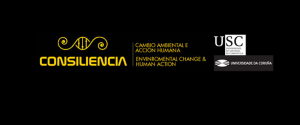The objective of this workshop is to explore the connections between paleodiet and paleopathology, with special focus on the stable isotopes and bone chemistry applications. The studies of diet and disease in antiquity have always been important areas of research in bioarchaeology and physical anthropology.
With the advent of stable isotope applications more than 40 years ago, our ability to reconstruct the diet of individuals significantly improved; however, despite the fact that numerous diseases have a dietary component, only relatively few studies have combined bone chemistry with palaeopathological analysis. More recently, there has been a surge of interest in integrating the two approaches, not just to explore the synergies between diet and disease but also to understand the relationship between health and mobility and exposure to toxins (eg. trace metals) and how to tell these effectively from post-mortem contamination.
This workshop will aim to take stock of recent advances and hopes to strengthen collaborations between different research groups on questions related to past diet and health and how these can be approached with bone chemistry applications. Discussions will include not only the differences between “diseased” and “healthy” individuals, but also, among others, which diseases are most suitably investigated by bone chemistry applications, how to deal with inter-population variation and intra-skeletal variability, and the role of environmental factors in disease ecology.
CONSILIENCE
CONSILIENCE is a network, funded by the Galician Autonomous Government (Xunta de Galicia, R2014/001), which brings together researchers from Archaeology, History, Social Sciences, Physical Anthropology, Earth Sciences and Information and Communication Technologies of the universities of Santiago de Compostela and A Coruña.
The aim of the network, following the words of E.O. Wilson in the homonymous book, is to develop a transdisciplinar approach to a unified understanding of our environment and the changes it underwent through time -with particular emphasis on transformations due to climate change and human activities.

The network is articulated into three basic lines:
1) Promotion of research actions, as microprojects in the areas of Geoarchaeology,Palaeodiet and Environment, Palaeoenvironmental Change and Palaeopollution, and Risks to Coastal Heritage).
2) Network activities: coordination meetings, thematic seminars, open workshops.
3) Dissemination activities: web dissemination, spreading of scientific techniques and results (videos, interactive electronic books, etc.), real time dissemination experiences, and analysis of audience behaviour.
The network also aims to establish strong links with professionals and enterprises/companies involved in the evaluation and preservation of the natural and cultural heritages.